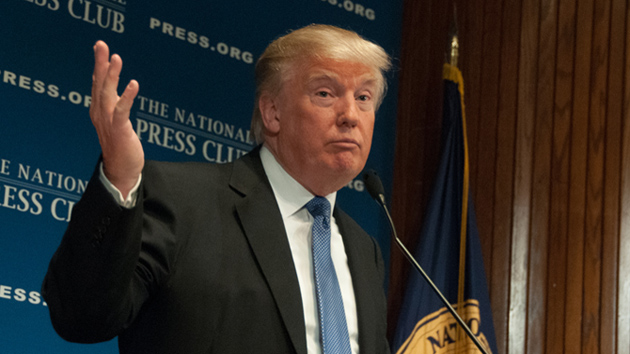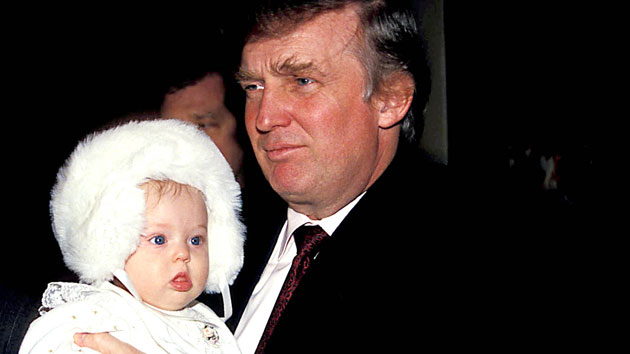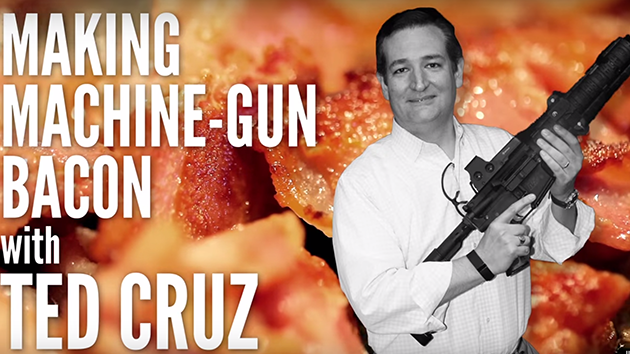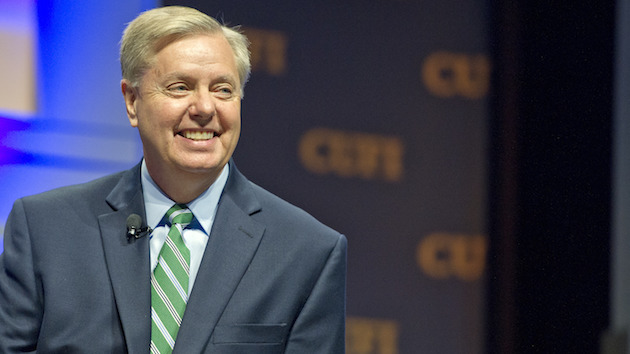One of the most underrated storylines of the 2016 election has been Louisiana Gov. Bobby Jindal’s ongoing effort to re-brand himself as a bodybuilder.
Last October, “a source close to Louisiana’s Bobby Jindal” leaked to National Review that the governor had gained 13 pounds over just a few months, an indication that he considered “being skinny” to be a weakness in the early Republican primary. In March, an MSNBC reporter tagged along with Jindal during a workout at a Manhattan gym. “Today’s legs, but every day I try to rotate it,” the governor explained before, presumably, flexing in front of the mirror and downing some brotein. And on Wednesday, BuzzFeed published a video it shot with Jindal in which he does push-ups for two minutes. It’s some real Rocky IV stuff:
But there’s something else going on here. On Tuesday, Texas Sen. Ted Cruz cooked and consumed “machine gun bacon” in a video produced by the website IJ Review. (Technically, it was more like semi-automatic-rifle bacon, and you shouldn’t try it at home.) Two weeks earlier, the same publication got Sen. Lindsey Graham (R-S.C.) to destroy his cell phone for its cameras, in response to Donald Trump publicly revealing his cell phone number. Jindal’s workout tape is part of a new genre of campaign journalism, in which media organizations are producing viral videos that the campaigns might otherwise have filmed themselves.
IJ Review, although only three years old, has forced itself to be taken seriously in Washington media. It will co-host a Republican primary debate with ABC News next year. BuzzFeed, an investigative reporting powerhouse in its own right, has delivered strong reporting on Jindal’s candidacy. But these videos are something different—a weird new form of native advertising.
What’s that Clickhole mantra? “Because all content deserves to go viral”? In 2016, the same can apparently be said of candidates. Even Bobby Jindal.















